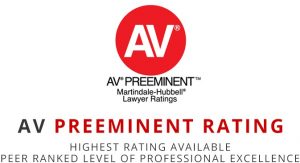Bankruptcy
What Do I Need to Know About Bankruptcy?
Do you live in Miami Lakes, Dade, Broward or Palm Beach county? Are you ready for a fresh start? The ultimate goal of filing for bankruptcy relief is to get a fresh start, free from the burden of debts. Whether you are filing a Chapter 13 bankruptcy case or a Chapter 7 bankruptcy case, your objective is to obtain a bankruptcy discharge.
What is a Bankruptcy Discharge?
Individuals filing under Chapter 7 and Chapter 13 of the Bankruptcy Code are eligible for a bankruptcy discharge. The bankruptcy discharge releases you from your legal and personal liability for certain debts. In other words, you are not required to repay a discharged debt. Furthermore, creditors cannot take any action to collect a discharged debt, including filing lawsuits, sending threatening letters, or calling you. The days of being afraid to answer the telephone or get the mail out of the mailbox are over.
However, the bankruptcy discharge does not remove valid liens on collateral. For example, if you owe money for a car loan, the lien on the car remains after you complete your bankruptcy case. You must either pay the car payments or surrender the vehicle. In some cases, you might be able to reduce the amount owed on the lien or get rid of a second mortgage in a Chapter 13 repayment plan. Our Miami Lakes bankruptcy attorney provides additional information on Chapter 13 versus Chapter 7 during your free bankruptcy consultation.
Choosing Between Chapter 7 and Chapter 13 to Get Out of Debt
Choosing whether to file under Chapter 13 or Chapter 7 of the Bankruptcy Code is a very important step in the bankruptcy process. Even though there are many differences between the bankruptcy chapters, neither chapter is “better” or preferred over the other chapter. Your financial situation determines if a Chapter 13 repayment plan or a Chapter 7 liquidation is your best option for eliminating debt.
While a Chapter 7 case can be completed in four to six months from the date of filing, it does not offer the same level of asset protection that a Chapter 13 case offers. For example, you can discharge most unsecured debts such as credit cards, medical bills, and personal loans under Chapter 7. You cannot get rid of other debts such as mortgages, car loans, most taxes, child support, alimony, and student loans by filing a Chapter 7 bankruptcy petition.
However, under a Chapter 13 repayment plan, you have more flexibility to deal with debts that not eligible for a bankruptcy discharge. You can catch up past due mortgage payments to avoid foreclosure. You might be able to reduce your car payments and lower the interest rate on your car loan in a repayment plan. In your Chapter 13 plan, you can pay alimony and child support arrearage or personal income taxes over a three to five-year plan.
In addition, a Chapter 13 case defers student loan payments during the bankruptcy case. Therefore, even though you cannot discharge the student loans, you are in a much better financial position to repay those loans after discharging your other unsecured debts.
Income Requirements for Chapter 7 and Chapter 13 Bankruptcy Cases in Florida
To determine whether you qualify to file under Chapter 7, you must pass an income test. The income test or Means Test compares your average monthly income to the income of other households of the same size in your state. If the average of your income during the past six months falls below the median income level, you may qualify to file under Chapter 7.
As discussed above, this chapter of bankruptcy does not provide as much protection for your assets. Even though you qualify for a Chapter 7 case, there may be reasons why you should consider filing under Chapter 13.
The Means Test is also used in a Chapter 13 case, but the goals are different. The Means Test is one of the factors used to calculate your bankruptcy plan payment. It is also used to determine the minimum length of your repayment plan. Our experienced Miami Lakes bankruptcy attorney analyzes your financial situation, including income, debts, and assets, to determine the best option for you to get out of debt while protecting your property.
Call Now for a Free Bankruptcy Consultation with a Florida Bankruptcy Attorney
We can help you take control of your personal finances and get out of debt through a bankruptcy filing. Bankruptcy offers relief from overwhelming debt by giving you a fresh start to recover and rebuild after a financial crisis.Call (305) 824-9800 to request your free consultation and no-obligation case evaluation with a Miami Lakes bankruptcy attorney. We want to help you take the steps that put you on the road to a better financial future. We have offices in Miami Lakes, Coral Gables, Miami, Hollywood, and West Palm Beach for your convenience.




